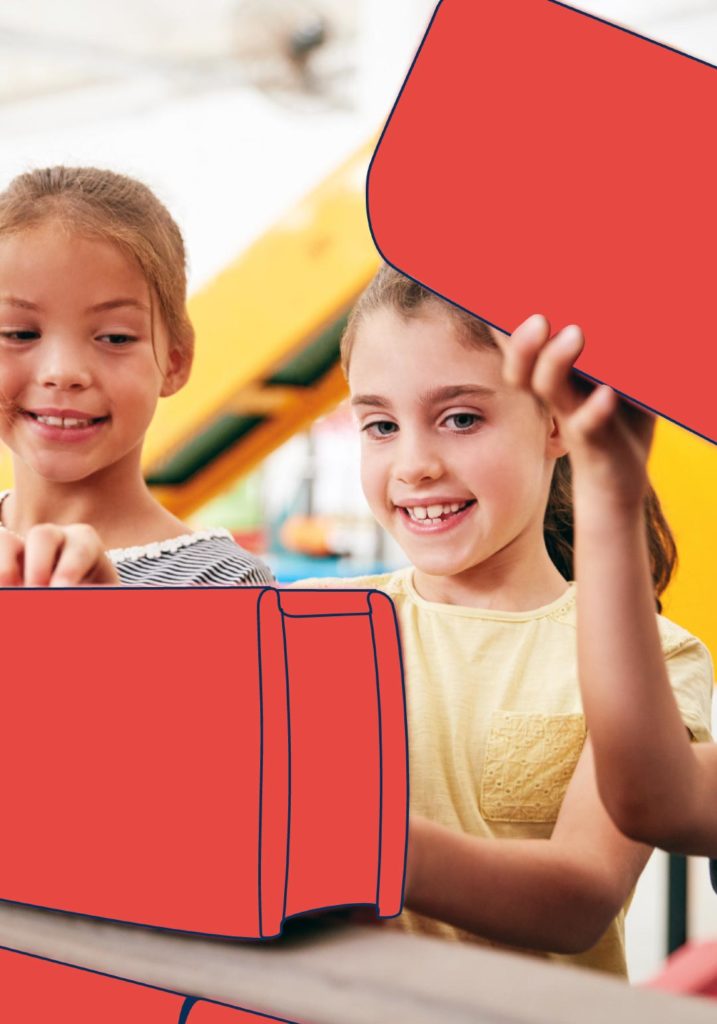
For the
future
new school?
The challenges and potential of contemporary global trends call for alternative settings and new ways to get engaged. They open up opportunities to experiment with new types of knowledge production and collaboration, and to rethink the institution of school.
Our association Koopkultur e.V. gathered a multidisciplinary team of educators, cultural workers, artists and researchers. We want to actively shape the transformation of the education system and found a school as an answer to the evolving needs of our time.
For more
dialogue
Our team members come from the Eastern European language area and they speak several languages. We ourselves have experienced that language is something fundamental. It gives our identity, it provides access to the world and access to knowledge. Participation in society AND the connection between generations are all dependent on language.
We work with families who share similar experiences. These families value being able to talk to their children and grandchildren in their native language. They see multilingualism as an important competence for their children’s future.
Berlin offers a wide range of choices for parents looking for a fitting school. Nevertheless, the demand does not seem to be met yet. Many families from Eastern European cultures wish for schools where children can learn their home languages and which offer an alternative educational approach.
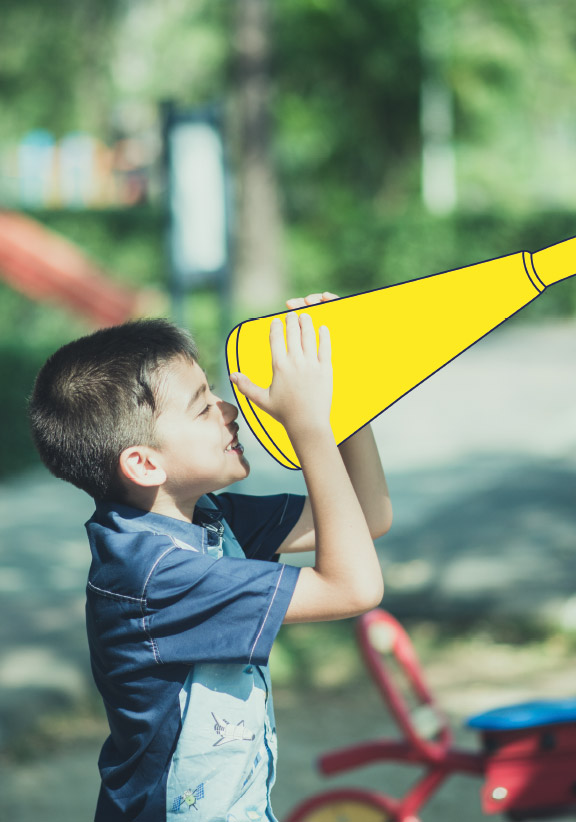

For more
dialogue
Our team members come from the Eastern European language area and they speak several languages. We ourselves have experienced that language is something fundamental. It gives our identity, it provides access to the world and access to knowledge. Participation in society AND the connection between generations are all dependent on language.
We work with families who share similar experiences. These families value being able to talk to their children and grandchildren in their native language. They see multilingualism as an important competence for their children’s future.
Berlin offers a wide range of choices for parents looking for a fitting school. Nevertheless, the demand does not seem to be met yet. Many families from Eastern European cultures wish for schools where children can learn their home languages and which offer an alternative educational approach.
We want to address this specific need and to open a school where Eastern European languages and different cultures such as East and West meet and interact as equals. The school is an open all-day primary school. The children learn together in cross-year and inclusive groups. With a cultural and artistic emphasis, the school offers a variety of learning settings. From year 1 onwards, the children devote themselves to free research, learn in interdisciplinary projects and explore conceptual spaces. Due to its language orientation and its educational goals, our school is an important alternative in the Berlin school landscape.
Mission
We want to address this specific need and to open a school where Eastern European languages and different cultures such as East and West meet and interact as equals. The school is an open all-day primary school. The children learn together in cross-year and inclusive groups. With a cultural and artistic emphasis, the school offers a variety of learning settings. From year 1 onwards, the children devote themselves to free research, learn in interdisciplinary projects and explore conceptual spaces. Due to its language orientation and its educational goals, our school is an important alternative in the Berlin school landscape.

The minds behindthe school
Since 2016, the members of the founding initiative have been working together as part of the skolla network (www.skolla.de). The focus of our work is the long-term exchange around education and pedagogical concepts for the future. This way we co-create cross-disciplinary projects and implement them at schools and other institutions. With our projects, we offer valuable learning opportunities that we want to develop into sustainable learning processes at the new school.
We want to keep learning and growing. To achieve this, we connect with other school initiatives, attend conferences and networks. We follow the work of Schule im Aufbruch, the European Democratic Education Community EUDEC and the International Democratic Education Network IDEC, the Pioneers of Education, the Berlin Interdisciplinary Network for Multilingualism BIVEM and the BKJ – Association for Cultural Education.
The idea behind the school
Our image of man
Our educational approach is based on and guided by a particular image of man, which the world needs in view of the global challenges.
This human being is creative, they shape and rethink the world, works out solutions for pressing problems of the present time and implements them. In their role as creators, they see themselves as a part of a network in exchange with other beings – other humans, animals, plants – and can act in a self-determined manner and with responsibility for themselves, others and the planet. This person values and protects diversity and understands it as a necessity for a sustainable society.
This image of man is based on the model of the eight “C “s of the School of the Future by Sir Ken Robinson:
The quadrat principle
The quadrat principle
Based on this image of man and in the light of the pedagogical principles that we learned and valued in our projects, we designed a school model that we call the quadrat (square) principle.
We think of our school as a system of 4 pedagogical environments that enable the child to cultivate their abilities and interests as much as possible and to evolve into a harmonious and fully developed adult.
How does one learn?
based on the
quadrat principle
How does one learn?
based on the
quadrat principle
For more
dialogue
The relationships are a fundamental element of our school. The multidisciplinary staff, children, parents, grandparents and external stakeholders form an active school community and work closely together. Our school is a place where adults and children explore, reflect and constantly realign their relationships with themselves, with others and with the world.
Every child at our school will be given enough space and time to become aware of their personal strengths, competences and interests and to develop their individual learning journey. Each child will have a contact person from the school team – a companion as a coach with whom they can build a trusting relationship. The task of this contact person will be to support and guide the child and to create a safe environment in which they can reach their potential.
We promote and strengthen a culture of social awareness.
The conscious work with the we-spaces and the dialogue are both the goal and the method at our school. It opens up a new dimension beyond our practical and isolated relationship to life and it allows us to see anew how we as human beings can live with each other.
We actively promote a feedback culture. Through the joint evaluation of everyday situations or problems and through constructive and motivating feedback within groups and on an individual level, processes are changed, goals are negotiated and their realisation is regularly monitored.
The school is a miniature society. Living together in a small community prepares us for living together in society. We build our school in a diversity-oriented spirit and we consider diversity as a value and an opportunity. Our aim is to acknowledge diversity within the school community, to consciously promote it and to enable it to flourish through artistic methods, experiential learning and reflection. We want to create a safe school environment, without discrimination.
Explore
Research
Discover
We aim to learn in relational and experiential situations so that knowledge does not only remain as an abstract entity in the minds of the students, but can always be placed in connections between the learners and their socio-cultural environment. Only in this way can this knowledge be reflected in products, tools and resources and open up possibilities for solving a wide range of everyday problems. School learning is enriched by exploration and research, social interaction, hands-on activities and the experiences that come with them.
Out-of-school venues are of great importance in order to create real-life learning situations. Learning takes place in the neighbourhood, in the city, in the museum, research laboratory, supermarket, forest or on the farm. We use the pool of expertise of different communities and work together with other people, organisations and relevant institutions.
Explore
Research
Discover
We aim to learn in relational and experiential situations so that knowledge does not only remain as an abstract entity in the minds of the students, but can always be placed in connections between the learners and their socio-cultural environment. Only in this way can this knowledge be reflected in products, tools and resources and open up possibilities for solving a wide range of everyday problems. School learning is enriched by exploration and research, social interaction, hands-on activities and the experiences that come with them.
Out-of-school venues are of great importance in order to create real-life learning situations. Learning takes place in the neighbourhood, in the city, in the museum, research laboratory, supermarket, forest or on the farm. We use the pool of expertise of different communities and work together with other people, organisations and relevant institutions.
Dreaming Enabling
Shaping Changing
The mission of our school is to create diverse (physical and virtual) spaces of possibility where students can experience empowerment and experience themselves as active and responsible shapers of their lives, their community and society.
We embrace the notion of education as forming and shaping in a very literal way. Through various types of activities, we want to enable all students to express themselves, to find their own language, to participate and to become visible.
Reflecting
Questioning
Every child at our school is given enough space and time to understand about how and in which world they want to live. They are given space for introspection, for observation and for critical thinking.
Our pupils reflect on topics such as happiness, freedom, responsibility, solidarity, friendship, family, etc. and discuss them with each other. We encourage and enable them to break away from the everyday conventions and assumptions that they might take for granted, and to adopt new perspectives.
With the help of portfolios, the pupils document their questions, observations and learnings. This daily or weekly documentation practice helps the students to become aware of their own learning processes and to place them in the context of their personal knowledge. As the children get older, we encourage them to extend their thinking. Portfolios also help the school team to better monitor students’ individual work progress.
What does one learn?
based on the
quadrat principle
What does one learn?
based on the
quadrat principle
We combine the classical school subjects to create interdisciplinary learning areas. Through interdisciplinary work and project work, pupils can look at phenomena from different perspectives and gain a better understanding of the connections. The curriculum of the standard school is not questioned by this, but is partly reorganised and supplemented by experiential knowledge. The children can tackle topics in an interdisciplinary way and can bring in their own topics. Much more space is given to learning holistic processes and project learning than is provided for in the curriculum of the regular school.
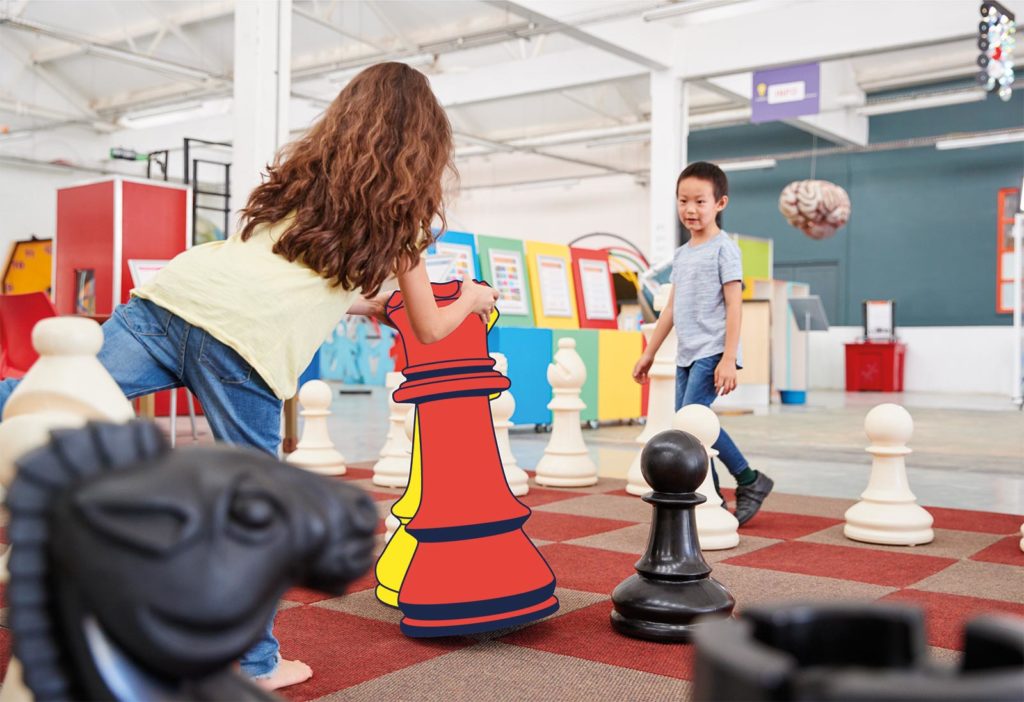
The city, and in particular the urban environment surrounding the school, is explored and actively shaped by the pupils in a playful, artistic and experimental way with the help of interventions, performances and creative actions.
The CITY (STADT) includes parts of the subjects art, science, social studies, history, ecology, life design, diversity, mobility education and traffic education, perception, etc. Every week for two hours we learn at different places in the city.
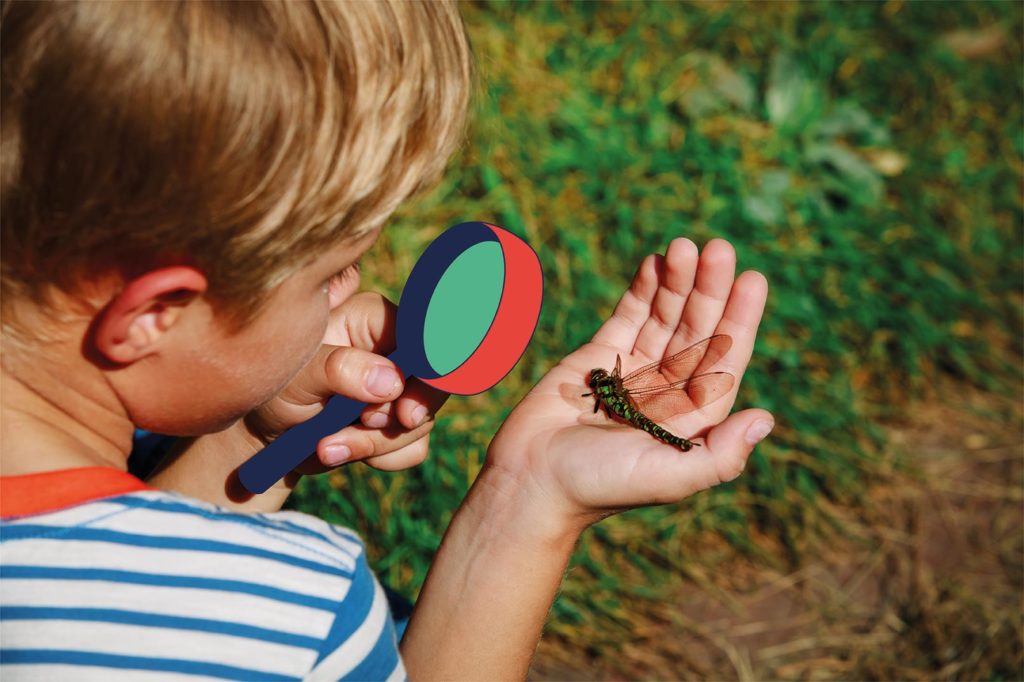
The NATURE (NATUR) offers the children an extensive space of discovery, which is not always available in their everyday urban environment. Once a month, we organise day-long “nature expeditions”. Together with tutors, artists, researchers and experts, the pupils can approach different topics that originate from or are related to the surrounding nature: emotions, experiences, worldviews or the human activity.
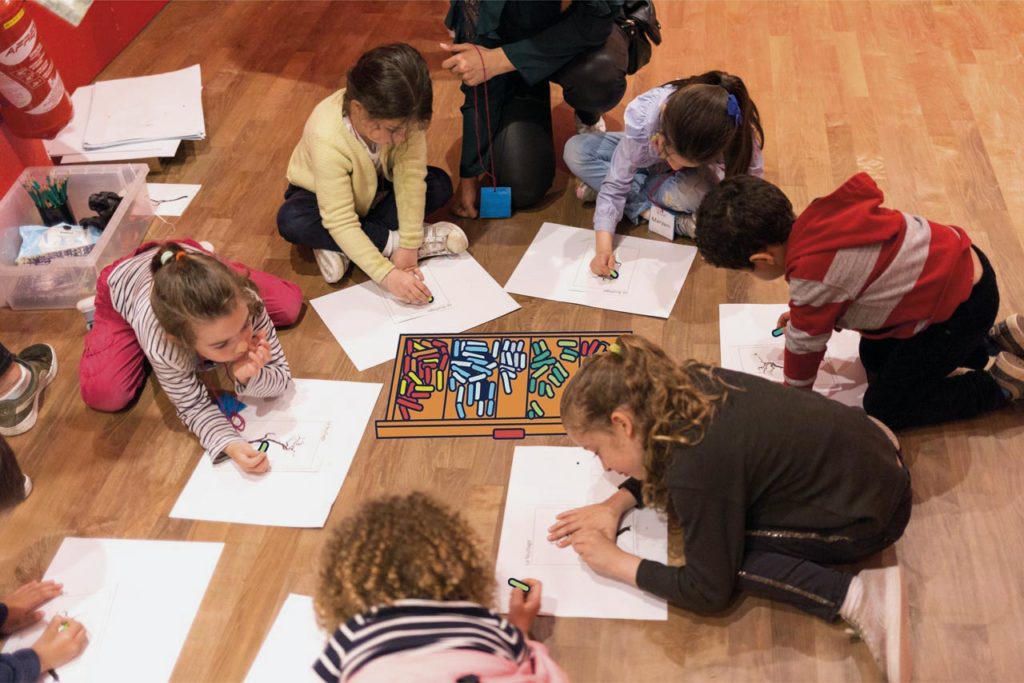
In our curricula, art is not a separate subject, but is integrated in our everyday school work. The “Artists in Residence” programe brings artists in our school to open up and enrich the lessons.
In addition, pupils get to learn about artistic strategies, materials, processes and techniques, as well as meet artists and their artworks for two hours a week. We encourage them to reflect on the arts and the relationship between the arts and the world around them. Once a month, the lessons take place in a cultural institution.

In our school, we pay particular attention to German, English and Eastern European languages. We start with two language combinations: German-Russian-English, German-Romanian-English. If there is sufficient demand, further combinations will be added. The children are taught in three languages.
The concept of language acquisition is the so-called translanguaging. This approach makes it possible for the children to practice not only the focus languages of the school. In the classroom we open spaces in which the pupils can use their entire linguistic repertoire during and for learning. At the same time, pupils learn to express themselves correctly and without ‘language blending’.
Translanguaging is applicable to all pupils, both experienced bilinguals/multilinguals and those who are considered monolingual. Our school is open to all children who speak at least one focus language.

We blend STEM (MINT) with art; therefore we address mathematical, technical and scientific questions with innovation, creative and critical thinking and cooperation. Pupils can express their own thoughts about the world through music and dance, for example. They can illustrate their findings with drawings, models or graphics or communicate with others in descriptive language.
In our school, we place great emphasis on mathematical education. Math is a fundamental competence along with language and writing. It is the foundation for being able to pursue the other STEM (MINT) subjects. However, math has a tradition as a difficult subject and is associated with negative experiences and fears. Therefore, it is important for us to promote and strengthen mathematical competences as well as the joy of math. Math lessons at our school are collaborative, creative, playful, exploratory, placed in projects and connected to the real world.
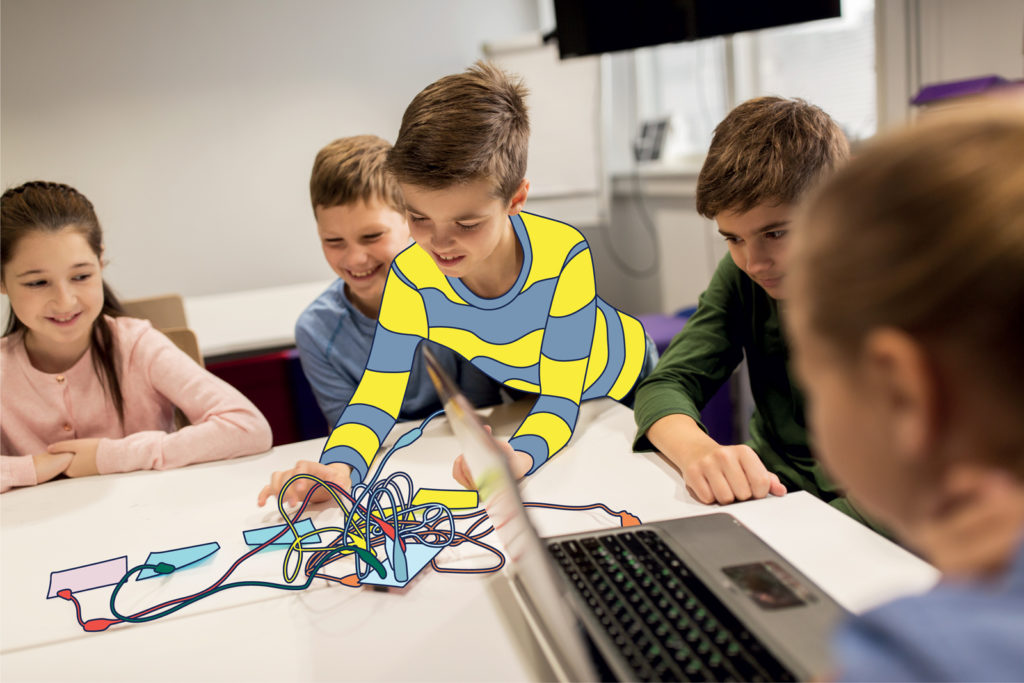
We want the children to explore the digital world responsibly, competently and safely. The pupils try out the use of media, get to know elementary informatics methods, encounter a wide range of media expression and progressively use digital tools in a self-organised, active and creative way in their educational processes. In addition to the playful approach to media content we include as well the critical reflection on media content.
The digital media is a valuable extension of our school methodological offer, thus offering a combination of analogue and digital learning methods with which the pupils can access the reality and also become creatively involved. In the classroom, we work with the blended learning approach, combining e-learning with hands-on experiments, explorations and discoveries.
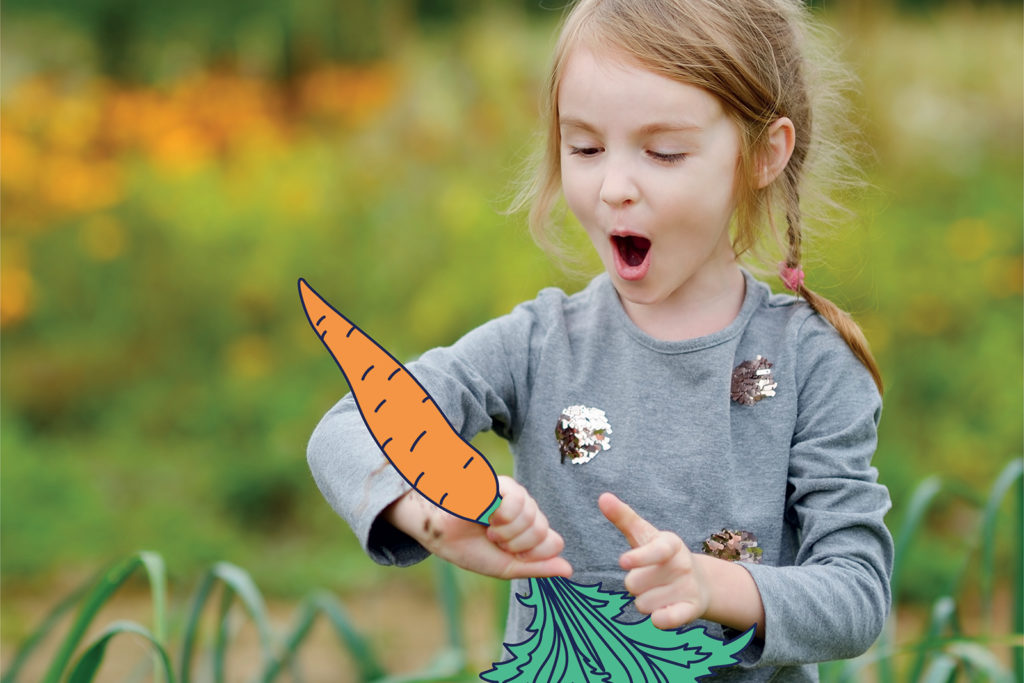
Our Fridays are different from the other school days. On this day we learn in the KITCHEN (KÜCHE) about nutrition, health, sustainable consumption, ecology, economy, ethics etc.. We shop together, work in the garden and visit green businesses. Furthermore, the children learn that cooking also means caring for others; hence the KITCHEN becomes a place of togetherness and dialogue.
This is the place where the school team, pupils and their families come together to cook, learn about different food cultures, discuss, experiment and eat together in a convivial atmosphere. The topics are dealt with in active cooperation between the school, parents and external partners.

Our brain exists in a living organism and the spirit is best grasped through it. Therefore, the body is our most important instrument of experience, which we want to treat with care. In our daily routine there are always times with a focus on body awareness and movement, with playful movement exercises, improvement of coordination and orientation in space, sensory activities and relaxation exercises.

Every day, the children are given space to organise their own time and decide with whom, on which topic and where in the school they want to work. In doing so, they are guided by the school team. The pupils gradually acquire the ability to set their own learning goals, to organise and take responsibility for their own work process and to evaluate themselves afterwards.
We also use this time for counselling sessions. In these discussions, we can look together with the child at what they can already do well, where they feel confident, or where there is a need for the child to deepen their knowledge or to improve their skills.
The city, and in particular the urban environment surrounding the school, is explored and actively shaped by the pupils in a playful, artistic and experimental way with the help of interventions, performances and creative actions.
The CITY (STADT) includes parts of the subjects art, science, social studies, history, ecology, life design, diversity, mobility education and traffic education, perception, etc. Every week for two hours we learn at different places in the city.


The NATURE (NATUR) offers the children an extensive space of discovery, which is not always available in their everyday urban environment. Once a month, we organise day-long “nature expeditions”. Together with tutors, artists, researchers and experts, the pupils can approach different topics that originate from or are related to the surrounding nature: emotions, experiences, worldviews or the human activity.
In our curricula, art is not a separate subject, but is integrated in our everyday school work. The “Artists in Residence” programe brings artists in our school to open up and enrich the lessons.
In addition, pupils get to learn about artistic strategies, materials, processes and techniques, as well as meet artists and their artworks for two hours a week. We encourage them to reflect on the arts and the relationship between the arts and the world around them. Once a month, the lessons take place in a cultural institution.


In our school, we pay particular attention to German, English and Eastern European languages. We start with two language combinations: German-Russian-English, German-Romanian-English. If there is sufficient demand, further combinations will be added. The children are taught in three languages.
The concept of language acquisition is the so-called translanguaging. This approach makes it possible for the children to practice not only the focus languages of the school. In the classroom we open spaces in which the pupils can use their entire linguistic repertoire during and for learning. At the same time, pupils learn to express themselves correctly and without ‘language blending’.
Translanguaging is applicable to all pupils, both experienced bilinguals/multilinguals and those who are considered monolingual. Our school is open to all children who speak at least one focus language.
We blend STEM (MINT) with art; therefore we address mathematical, technical and scientific questions with innovation, creative and critical thinking and cooperation. Pupils can express their own thoughts about the world through music and dance, for example. They can illustrate their findings with drawings, models or graphics or communicate with others in descriptive language.
In our school, we place great emphasis on mathematical education. Math is a fundamental competence along with language and writing. It is the foundation for being able to pursue the other STEM (MINT) subjects. However, math has a tradition as a difficult subject and is associated with negative experiences and fears. Therefore, it is important for us to promote and strengthen mathematical competences as well as the joy of math. Math lessons at our school are collaborative, creative, playful, exploratory, placed in projects and connected to the real world.


We want the children to explore the digital world responsibly, competently and safely. The pupils try out the use of media, get to know elementary informatics methods, encounter a wide range of media expression and progressively use digital tools in a self-organised, active and creative way in their educational processes. In addition to the playful approach to media content we include as well the critical reflection on media content.
The digital media is a valuable extension of our school methodological offer, thus offering a combination of analogue and digital learning methods with which the pupils can access the reality and also become creatively involved. In the classroom, we work with the blended learning approach, combining e-learning with hands-on experiments, explorations and discoveries.
Our Fridays are different from the other school days. On this day we learn in the KITCHEN (KÜCHE) about nutrition, health, sustainable consumption, ecology, economy, ethics etc.. We shop together, work in the garden and visit green businesses. Furthermore, the children learn that cooking also means caring for others; hence the KITCHEN becomes a place of togetherness and dialogue.
This is the place where the school team, pupils and their families come together to cook, learn about different food cultures, discuss, experiment and eat together in a convivial atmosphere. The topics are dealt with in active cooperation between the school, parents and external partners.


Our brain exists in a living organism and the spirit is best grasped through it. Therefore, the body is our most important instrument of experience, which we want to treat with care. In our daily routine there are always times with a focus on body awareness and movement, with playful movement exercises, improvement of coordination and orientation in space, sensory activities and relaxation exercises.
Every day, the children are given space to organise their own time and decide with whom, on which topic and where in the school they want to work. In doing so, they are guided by the school team. The pupils gradually acquire the ability to set their own learning goals, to organise and take responsibility for their own work process and to evaluate themselves afterwards.
We also use this time for counselling sessions. In these discussions, we can look together with the child at what they can already do well, where they feel confident, or where there is a need for the child to deepen their knowledge or to improve their skills.
